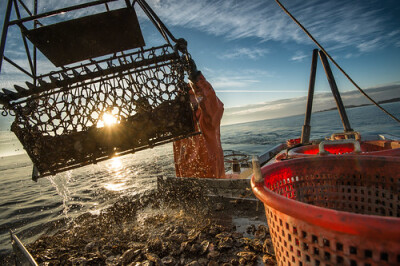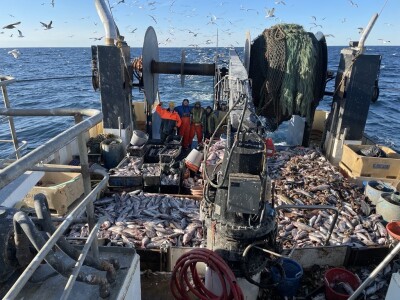By now the local reaction to the waterfront arrests in New Bedford of one of the port’s major figures has begun to shift to inevitable questions of the role of the federal government in the regulation of commercial fishing. Operating under federal law, the current groundfish system of control, the so-called “catch shares” plan, began with Amendment 16 in 2009 by vote of the New England Fishery Management Council. This intricate system of allocating by fish species what can be caught and landed by licensed federal permit holders has clearly changed the market economics for New England fishing; a rapid concentration of fish permit holders has led to what functions as a government-created near monopoly. The fact that a single owner now controls at least 40 New England groundfish permits means that one person’s actions, whether driven by good or bad motives, reverberates through the regional economy.
We need to remember that this discussion is critical to the future of our port, and in my mind is distinct from the ultimate guilt or innocence of those charged to date. The presumption of innocence holds for anyone accused of a crime and they are entitled to a vigorous defense on their behalf. Regardless of the outcome of those proceedings, however, our port’s future depends on candidly looking at whether there has been a detrimental role played by the government’s regulations and how we got to this point. After all, the Port of New Bedford has a key role in the movement of seafood nationally; NOAA statistics for 2014 identify the port’s product value for landings at $327 million overall of which $251 million is from scallops. Using a conservative economic multiplier, the value to our local economy is over $600 million a year. By comparison, Gloucester’s seafood dollar value is only one-seventh of ours at $46 million during the same period.
The public documents now available online growing out of the New Bedford prosecutions point to a pattern of deceptive behavior where catch share quotas for specific types of fish were allegedly misreported for private economic gain. Because this type of behavior is alleged to be overseen by someone who owns and controls the most permits, the local groundfish industry in New Bedford is therefore more vulnerable and susceptible. That is a departure from history, where a diverse port economy relied on the decisions of many stakeholders. I don’t believe this concentration is a good thing for the overwhelming majority of those who look to and depend upon the seafood industry. Whatever is occurring at sea with respect to the science of habitat quality, species survival and sustainability is one thing; its quite another for a port’s success or failure to be put in jeopardy as a result of a narrow band of ownership encouraged by the Federal regulations adopted to protect the fisheries.






